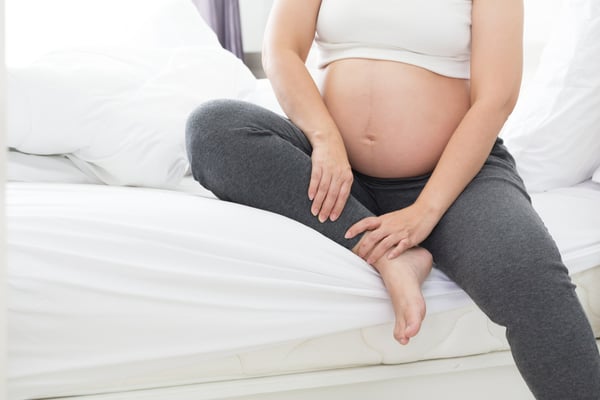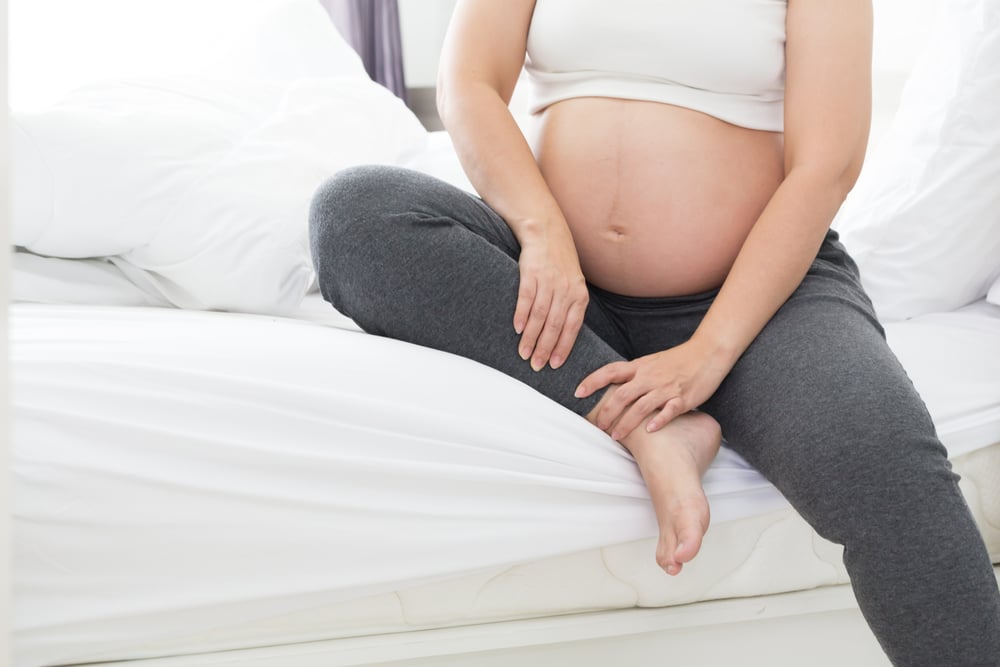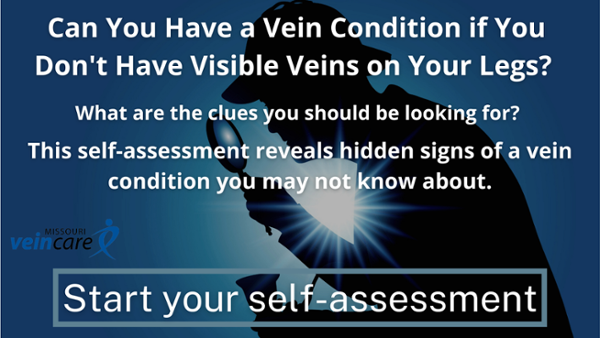Will My Pregnancy Cause A Vein Condition?

Pregnancy is a wonderful season of life! It's a time of anticipation, preparation and change as you wait for the arrival of your new baby...but your body changes almost daily. And most of those changes are expected. But what happens when, as your body adapts to the new life growing inside of it, those physical changes become uncomfortable, if not painful. For many women, an unintended side effect of the beauty of pregnancy is the onset of a pregnancy-related vein condition. Struggling with the discomfort of leg swelling and fatigue, pregnant women naturally have lots of questions: What caused this? Will it go away? Is this harmful to my unborn child? Read on as I answer questions about pregnancy-related vein conditions.
What's the Connection Between Pregnancy and a Vein Condition?
During pregnancy, your blood volume will increase and the rate that blood flows from your legs to your pelvic area decreases - putting more pressure on the veins. There are three main reasons for developing varicose veins:
- Your body responds to pregnancy and produces more blood than normal. This increased blood flow delivers critical blood and oxygen to your unborn baby as he/she is growing and developing.
- Pregnancy hormones tell your body what to do for the unborn baby and begin making the walls of your veins softer and more elastic to accommodate the increased blood flow. Unfortunately, a side effect is that the vein valves in your legs no longer function as well as they did prior to pregnancy, resulting in an increased chance of developing vein reflux.
- As your pregnancy advances and the baby continues to grow and develop, your expanding uterus takes up more space in your abdomen. The size and weight may impede blood flow, causing it to pool in your lower legs. It’s not uncommon to see swollen feet and ankles, especially in the third trimester.
Can I Prevent them?
While you can’t prevent your body’s natural and healthy response to pregnancy, there are things you can do to help minimize the discomfort. Here are some tips to try out:
- Activity: Stay as active as possible. Going for a walk or swimming while pregnant will help your circulation and keep blood flowing in the legs. Calf exercises and walking in place are great to keep the blood flow up as well.
- Comfort over style: Wear comfy clothes that aren’t too tight, especially around the thighs. Avoid tight-fitting shoes, elastic tops, and belts.
- Sleep on your left side: Good news left-side sleepers! This helps to decrease pressure on your main blood vessels and keeps circulation moving.
- Watch weight gain: Obviously, during pregnancy, it is only normal to gain weight, keep it to what your doctor recommends - usually 25 to 30 pounds. More weight = more demand on your vessels and veins.
- Elevate: In the evenings when symptoms tend to worsen, lay down and elevate your legs and feet, propping them up with pillows. Gravity helps the blood flow back out of the legs. Most women, by morning, feel much better.
- Wear compression stockings: Compression stockings are designed to mimic the work of the vein valves, and when veins soften, compression stockings can help minimize the effects of vein reflux. Pregnant women do best with pregnancy pantyhose.
Keep in mind that these tips will help slow down or minimize the symptoms of a vein condition that develop almost naturally with the body’s response to pregnancy, but they won’t be able to stop it completely.
When Will they Go Away?
You will probably be eager to know when or if they will disappear, right? Most women who develop a vein condition during pregnancy can expect that most, but not all, of the veins will fade away or become less prominent in the months after delivery. Women still notice that each pregnancy will result in some veins that don’t go away after delivery, and they usually speak with a mother’s pride as they describe which child caused which veins. It isn’t instantaneous, though, and there's no exact time frame, as every body is different. It could take anywhere from a few weeks up to a few months for the body to reset. Be mindful that, if you experienced them the first time you were pregnant, there’s a high likelihood you will have your varicose veins back with the next pregnancy. It is important to note that because most veins fade away after pregnancy, vein treatments are not recommended during pregnancy and should be reevaluated a few weeks after delivery.
Should I Get My Veins Treated After Pregnancy?
The old-fashioned recommendation (no longer!) was to wait until you had your last kid before having vein treatments. That is a long time to wait if you have visible painful veins. This was because old-fashioned vein stripping was not very successful and was rarely recommended. These patients suffered needlessly and their visible veins expanded and worsened over time as a result. Today, with patient-friendly and successful office treatments, there is no reason to wait to have treatments, especially if you are expecting more kids in the future. Treating the vein problems as they come up keeps your legs feeling and looking better and slows down the progression of the condition and will reduce the chance that you have pain with your next pregnancy. We recommend an evaluation 6 weeks after delivery.
Remember, with pregnancy, your body is going through a lot of changes. Be kind to your body. Take time to rest, elevate your legs, and wear compression stockings. If you suspect you may be suffering from a vein condition with your pregnancy, a free vein screening will let you know for sure. And once that baby arrives, enjoy the moment and let your veins heal. If they are still visible or painful 6 weeks later, vein treatment can help.



